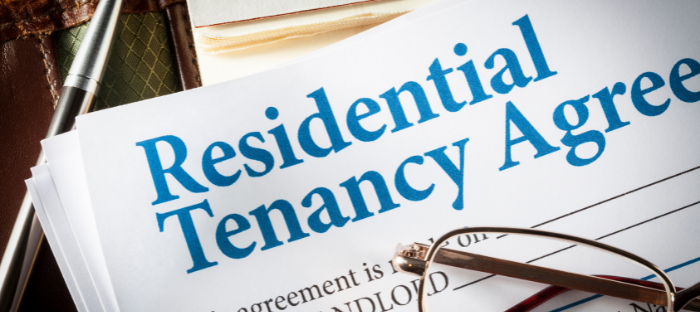Your Rights as a Tenant, What You Need to Know.
Your Rights as a Tenant, What You Need to Know.

What is a lease and how does it work?
A rental lease for residential tenancies is an agreement where a tenant agrees to pay rent to the landlord in return for the right to live in the property for a given period of time.
The most common type of lease is a written lease, which spells out the terms and conditions of the tenancy in detail. Oral leases are also legal, but they are infinitely more difficult to enforce.
As a tenant, you have certain rights that are protected by law.
These rights include the right to live in the rental unit without being harassed or evicted without cause, the right to privacy, and the right to receive proper notice before your lease is terminated. It is important to know your rights and to understand what your landlord can and cannot do.
If you have a problem with your landlord, such as a repair that needs to be done or harassment, you can file a complaint with your local housing authority or tenant union. You may also want to consult an attorney to help you protect your rights.
Tenancy Rights in Canada.

Before signing a lease or rental agreement, make sure you fully understand your rights and responsibilities as a tenant under provincial law (which can vary by province). These rights work to make sure both landlords and tenants are safe.
Eviction proceedings, for example, need to have a valid reason behind them. In the same vein, falsifying a credit check or another legal document can cause a landlord to dissolve a tenancy agreement regardless of the lease term.
A landlord cannot discriminate based on factors like marital status, race, or disability, and they must provide heat, hot and cold water, and reasonable amounts of electricity to their tenants.
As a tenant, you are expected to keep the property clean and in good repair; should you fail to do so, the landlord can issue deductions from your security deposit.
Landlords cannot evict a tenant without following provincial law – usually, this means giving the tenant proper notice to vacate and going through the formal eviction process. In most cases, the landlord must provide a reason for wanting the tenant to leave, such as non-payment of rent or damage to the property.
If you feel that you are being unfairly evicted, you can challenge the decision in court where dispute resolution may involve increased costs for everyone involved.
Rental applications and credit history.
Before signing a lease agreement, an application is always required. The landlord will perform some type of credit check to ensure that the tenant can financially support themselves as well as pay their rent on time each month; this protects them from losing money on what they consider an "undesirable" tenant.
A lease agreement should outline the terms of the agreement between tenants and landlords, specifying things like the rent payable, whether that rent is delivered through post-dated cheques or bank transfers, and whether rent increases are to be expected.
Poor credit doesn't automatically mean that you cannot rent anywhere but most landlords are within their legal rights to refuse someone as a tenant because of their credit scores.
When can my landlord enter the property and what do they need to provide me with notice of entry?
A landlord needs to provide written notice to their tenant before entering the property, except in cases of emergency. The amount of notice required depends on the province but it is typically 24 hours or more.
The landlord can only enter during reasonable hours, and cannot use force or threaten violence in order to gain access to the premises. They are also not allowed to enter if the tenant has specifically asked them not to.
What should I do if my apartment needs repairs?

If your apartment needs maintenance (such as a leaky roof), you should contact your landlord to let them know.
Your landlord is required by law to fix any problems that are considered "reasonable wear and tear" but it is advisable for the tenant to document all existing damage (such as photographs or written notes) in case they attempt to charge them at a later date.
If there is a need for emergency repairs, you should also contact your landlord right away.
Tenant's responsibility for repairs.
As the tenant, you are also responsible for repairing any damage that you or your guests may cause to the property. This includes things like stains on the carpets, broken windows, and holes in the walls. If the damage is severe, the landlord can issue deductions from your security deposit.
What can I do about a rent increase?
A landlord is only allowed to initiate the procedures for a rent increase once per year (usually at least 12 months after the initial agreement).
If you're not sure about how much your rent will go up, many provinces require landlords to provide notice of their intent with an estimate. The tenant can then contest the proposed raise in court if they feel that it is unfair.
Can a landlord change the locks or shut off my utilities if I'm late on rent?
No, a landlord cannot take any such punitive actions without following the proper legal procedures. This includes providing the tenant with written notice of their intent to evict, and waiting for the court's judgement before taking any action. Late fees for late rent payments can also be added, these should be specified in your written agreement. These fees can add up but should not reach or exceed one month's rent.
What if I have trouble paying rent?
If you're having trouble paying your rent or keeping up with your other bills, many provinces have rent-assistance programs available to help you. In British Columbia for example, the Housing Registry can help renters find their local rental assistance program if they meet certain criteria.
If I cause damage to the property, do I have to pay for it?
In most cases, a tenant is expected to pay for any damage that they cause to the property – whether it's intentional or not. The landlord can issue deductions from the security deposit in order to cover the costs of repairs and may take legal action if the tenant does not pay.
Changes in the tenancy situation.
How much notice must I give before moving out of the property?
There are no standard rules for the amount of notice that a tenant must give before moving out. If you have a fixed-term tenancy agreement, you may have to provide your landlord with 90 days' notice if you wish to move out before the lease expires.
If you do not provide written notice, the landlord may hold onto your security deposit (or part of it) as compensation.
Ending a tenancy agreement.
There are a few ways that a tenancy can end: by the tenant moving out, the tenant being evicted, or the lease expiring and not being renewed.
If you're moving out, you must provide your landlord with written notice (unless you have a fixed-term agreement, in which case you may have to give more notice). If you're being evicted, the landlord must provide you with a valid reason (such as not paying rent) and follow the proper legal procedures.
If the lease expires and is not renewed, the tenant must move out unless they sign a new lease agreement with the landlord.
What are my rights as a tenant if the property is sold?
If you have a month-to-month tenancy agreement and your landlord sells the property, they will typically need to provide you with one month's written notice that they intend to end your tenancy (unless there is an agreement in place stating otherwise).
If you have a fixed-term lease agreement, the new landlord must honour it unless they can prove that they would be substantially worse off financially if they continued to rent to you. In this case, they may provide you with written notice that they intend to end your tenancy.
The new landlord is also required to give you a copy of the new lease agreement (if one is signed) and any other information that you may need.
What if I want to sublet?
You will need the landlord's permission if you intend to have someone else become part of your lease as additional occupants or if you intend to create a sublease.
A sublease agreement, that a subletter needs to sign, is a written agreement that you, your landlord, and the new tenant must all agree to. In the end, it's important that the tenant pays the amount outlined in the lease for the rental property on time. This applies whether that you or your subletter.
Miscellaneous Information
Contact information.
Rental housing is, in a way, a partnership. Tenants and landlords exchange documents all the time. Rental payments, rent receipts, notices about the time where the landlord intends to collect rent, giving a landlord notice prior to moving out, and so on.
Some personal information is exchanged during the application process but notifying your landlord of changes and them notifying you of the same can save you some headaches.
As such, it's important for both the landlord and the tenant to exchange contact information so they can communicate easily.
Whether it's about a pet damage deposit, damage gone unnoticed or hidden during an initial inspection, or a clear way to resolve disputes without either part needing to resort to referring to the residential tenancy act.
Special circumstances
Unpaid rent, whether it's a month's rent or more, is something that the landlord requires further information on. If both landlord and tenant have an agreement in place, then they may freeze things like late fees.
For example, if someone is fleeing family violence or dealing with other extant circumstances and the landlord and tenant mutually agree on the path forward, then there will be no need to seek out legal advice. As always though, putting everything in writing is the best path forward.
What is tenant insurance?
This is insurance that tenants can purchase to protect their belongings in the event that something happens to the property. This could include things like a fire, vandalism, or theft.
Landlords are not responsible for protecting tenants' belongings and, as such, tenant insurance is a good way to ensure that your belongings are protected in case
View All Homes For Sale in Greater Vancouver >>>
About Search Home Listings
SearchHomeListings.ca has simplified the home buying and selling process by giving you superior tools with up-to-the-minute information including active homes for sale, sold homes, market reports, and a home valuation tool! We have a team of success managers on standby to support you with setting up your saved home search and agents ready to take you out on a tour. Tap into our industry experts from inspectors, to contractors to interior designers to provide you with the best prices and service possible. Everyone attached to our website has been rigorously vetted and is made up of caring, knowledgeable professionals that work tirelessly to help you to make your home buying experience as stress-free as possible. Contact us today to see how we can help!
Sites We Follow
Categories
Recent Posts










